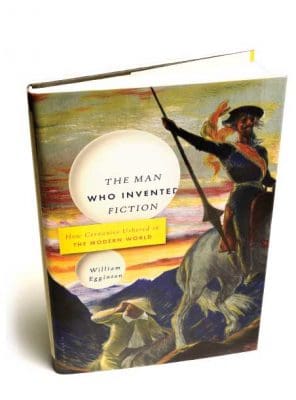Only a select group of historical figures has had immortality thrust upon them with their names woven into modern parlance as adjectives. A few examples are Draconian measures, Orwellian policies, Rubenesque figures, Kafkaesque circumstances, and Dylanesque lyrics.
And then there is Machiavellian behavior, which according to author Christopher S. Celenza, does not accurately or adequately reflect the Italian Renaissance diplomat, writer, and political philosopher.
In short, Niccoló Machiavelli gets a bum rap, charges Celenza, chairman of the Department of Classics and Charles Homer Haskins Professor at the Krieger School, in his new book, Machiavelli: A Portrait.
Machiavelli’s views, he says, were far more nuanced and complex than his reputation for being politically ruthless and cunning indicates. “We have to see Machiavelli in the context of his world,” Celenza says. “If you cherry-pick him, you’ll miss a lot.”
Celenza first became interested in Machiavelli while serving as director of the American Academy in Rome and spending a week in the summer of 2013 as a visiting professor at the University of Sydney. He was asked there to deliver a talk on Machiavelli, and “I was reluctant initially because my field was the century before Machiavelli,” he says.
But in his preparations, he became intrigued and consumed by Machiavelli’s life and oeuvre. Soon, Celenza decided he wanted to write a biography. “I saw there was a lot more to him and I wanted to try to reach scholars and a general audience, to make Machiavelli and his world more accessible,” he says.

“I wanted to try to reach scholars and a general audience, to make Machiavelli and his world more accessible.”
—Christopher Celenza
Born in the Renaissance epicenter of Florence in 1469, Machiavelli was raised in a middle-class household—his father was a noted attorney—in which he was taught to write in Tuscan and educated in Latin, while studying the ancient classics. He came of age during a turbulent period in which papacies waged wars against Italian city-states, and political and tribal factionalism ran rampant. Violence and unrest loomed over the era.
“We can assume he saw public executions, including the 1478 executions of the Pazzi family for their conspiracy, when he was 9 years old,” Celenza says. “It’s hard for us to imagine ourselves in his world. In Florence, war was something that happened on a yearly basis and was always at your doorstep.”
In 1498, Machiavelli was elected to serve as secretary of Florence’s Second Chancery, issuing government documents and engaging in approximately 50 diplomatic missions. He studied the machinations of governance and power. “Machiavelli enjoys his greatest triumph when he gets the Florentine government to form a citizen militia,” says Celenza. “He likes being in the fray.”
But in 1512, the Medici family returned to power in Florence, and Machiavelli was kicked out of office, accused of conspiracy, imprisoned, and tortured. He was released after three weeks but placed under house arrest.
At his family estate, Machiavelli wrote letters, political treatises, and other works. “The arrest made him put his ideas on paper,” Celenza says, “He really wanted to get back into politics.”
Among his works during this period is The Prince. Celenza says Machiavelli’s masterpiece, published posthumously, was never intended by its author to be consumed by generations of political scientists.
“He only makes it ‘public’ to the public he wants to read it,” Celenza says. “He’s not writing about universal themes and theories; he wants the right people to see this. My theory is he looked at it as an extension of his letters and wanted it to be seen by friends and connections.”
The Prince aptly demonstrates that Machiavelli was a product of his times and a pragmatist when exploring the dimensions of power. “To have a strong foundation for a republic-state, he says you need good arms and good laws—but good arms first!” Celenza says. “He says violence is only when there is clear justification. … To me, Machiavelli was a realist conditioned by his brutal world. But there always hovers the ghost of an ideal ruler or republic that could exist.”
By the end of the 16th century, Machiavelli’s works and views gained a broader audience, and his reputation grew among political thinkers. “People realized he detached traditional morality from politics,” Celenza said. “We have to see Machiavelli as one step in the long genealogy of the Western modern world. Machiavelli takes the classical movement that came before and translates it into the vernacular. For his era, that’s radical, a new concept.”
By presenting Machiavelli in human terms, Celenza hopes to clarify the misconceptions and simplifications. “There are so many ways we can understand Machiavelli, and the reason he’s read today is because you can still use what he wrote,” he says. “There will never be a final word on Machiavelli. He’ll be studied again and again because his works can be interpreted in so many different ways.”




